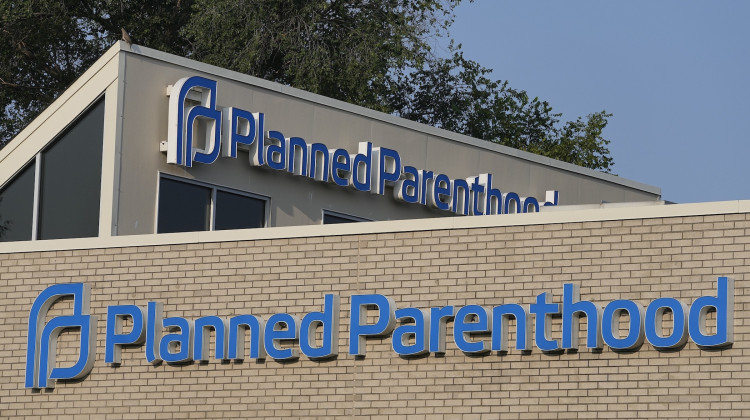
For Thanksgiving this year, Kurt Beard was planning to travel from Indianapolis to Ohio and meet family for an outdoor hike, but as he watched COVID-19 rates spike he decided even that was too risky. Instead, his family is ordering pizza, video chatting with relatives and playing games.
However, when weighing spending time with elderly family members versus the coronavirus threat, Beard is conflicted.
"It's that decision of well, do you just not get to see grandma and grandpa 'til this is all over?" he says. "Do my parents want to risk getting sick, if it means seeing their grandkids?"
As COVID-19 cases continue to rise, government and health officials are pleading with people to change their behavior around the holidays and stay home. With less than two weeks until Thanksgiving, this poses a significant dilemma for families across the country.
Pandemic fatigue has set in for many and more than eight months into the pandemic, people are both eager and anxious about how to connect with family.
There's no way to know for sure how many people are staying home this Thanksgiving. Airline travel is down as much as 88 percent from last year, according to airline analysts, and AAA predicts many fewer cars on the road.
Still, many people are struggling to figure out what's best.
"We highly recommend enjoying Thanksgiving with people who live in your household," says Andrea Janota, a public health expert at Indiana University-Purdue University Indianapolis. "We see that the most transmission happens when we have mixing of households."
In all likelihood, not everyone will follow this advice, so Janota has some ideas for people who still want to travel and see family, which requires some preparation prior to Thanksgiving day.
"So staying home as much as possible — maybe you do pickup of groceries, rather than going grocery shopping in the store," Janota says. "Making sure you're practicing really good hand hygiene, things like that."
A 14-day quarantine period could prevent transmission — especially for asymptomatic cases. Janota also says if you can get tested, you should.
"I think if people can really kind of reflect that this is not going to be forever," Janota says. "This is something we're going to deal with this year. It's going to be your unique quarantine from COVID Thanksgiving."
A tool from researchers at the Georgia Institute of Technology helps estimate transmission risk at the county level and by event size. In certain Vermont counties, the risk of someone at a 10-person event having COVID-19 is estimated to be 2 percent. However, for counties in North Dakota, this risk is above 80 percent. This assumes there are five times the COVID-19 cases than accounted for, a figure that experts have suggested could be even higher.
Scott Brookie decided to pare down his usual 15-to-20 person Thanksgiving celebration. Instead, his immediate family will all get tested and quarantine beforehand.
"Not seeing family, you know, up close and personal all the time has been pretty tough," Brookie says. "I'm kind of bracing myself to see people in person less and less."
Courtney Taylor also chose to forgo her large family Thanksgiving in Illinois, partly because she's pregnant, which puts her at higher risk for COVID-19 complications. Taylor says she knows what it's like to feel tempted to ignore public health advice.
"It's kind of like you know what the right thing to do is, and it's not go, but it's so tempting to want to spend time with your family that you haven't seen in such a long time," Taylor says. "It's just kind of that dilemma that you're facing."
But Taylor says her family is still going to try and make the best of it by creating their own Thanksgiving traditions.
"We've made a Pinterest board of all the Thanksgiving food that we want to make and all the sides," Taylor says, laughing. "We're gonna kind of go big with our own Thanksgiving and eat leftovers for however long it takes."
 DONATE
DONATE




 View More Articles
View More Articles

 Support WFYI. We can't do it without you.
Support WFYI. We can't do it without you.